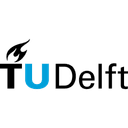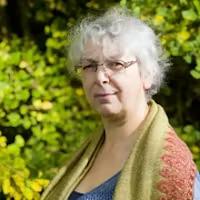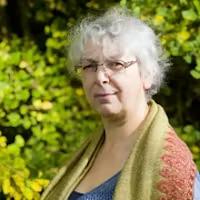This course is part of Sustainable Engineering Design.
This comprehensive course explores innovative approaches to product design within the circular economy framework. Students will learn advanced strategies for creating sustainable products that minimize waste and maximize resource efficiency. The course covers crucial aspects of Design for R (Reuse, Repair, Remanufacturing, and Recycling), teaching practical methods to extend product lifecycles and ensure material conservation. Led by experts from leading European universities, participants will discover how companies are revolutionizing their approaches to create value while maintaining sustainable supply chains. The curriculum combines theoretical knowledge with real-world applications, preparing learners to implement circular economy principles in product design and engineering.
4
(15 ratings)
17,145 already enrolled
Instructors:
English
Arabic, German, Spanish, 8 more
What you'll learn
Master Design for R strategies including reuse, repair, remanufacturing and recycling
Integrate lifecycle thinking into product design and development processes
Understand strategic importance of sustainable material management
Balance value creation with environmental sustainability
Develop strategic design skills for circular economy solutions
Implement sharing economy principles in product design
Skills you'll gain
This course includes:
PreRecorded video
Graded assignments, exams
Access on Mobile, Tablet, Desktop
Limited Access access
Shareable certificate
Closed caption
Get a Completion Certificate
Share your certificate with prospective employers and your professional network on LinkedIn.
Created by
Provided by

Top companies offer this course to their employees
Top companies provide this course to enhance their employees' skills, ensuring they excel in handling complex projects and drive organizational success.





There are 6 modules in this course
The course is structured around the key principles of circular economy design and engineering. It begins with an introduction to material challenges and circular economy fundamentals, followed by detailed exploration of Design for R strategies. Students learn about designing for product longevity, efficient repair processes, remanufacturing systems, and effective recycling. The curriculum emphasizes practical applications through real-world examples and case studies from industry leaders, concluding with comprehensive coverage of sustainable value creation through strategic product design.
Introduction: The materials challenge and the importance of product design for a Circular Economy
Module 1
Design for Reuse
Module 2
Design for Repair
Module 3
Design for Remanufacture
Module 4
Design for Recycle
Module 5
Conclusion: Thinking in loops. Creating sustainable value through strategic product and business design
Module 6
Fee Structure
Individual course purchase is not available - to enroll in this course with a certificate, you need to purchase the complete Professional Certificate Course. For enrollment and detailed fee structure, visit the following: Sustainable Engineering Design
Payment options
Financial Aid
Instructors

4 Courses
Leading Authority in Circular Economy and Critical Materials
David Peck serves as an Associate Professor at TU Delft's Faculty of Architecture and the Built Environment, where he specializes in Climate Design & Sustainability, Circular Built Environment, and Critical Materials. After transitioning from the Faculty of Industrial Design Engineering in 2016, he has established himself as a pioneer in sustainable resource management and circular economy. His research portfolio spans 21st-century sustainability challenges, critical raw materials, and circular business models, while leading major EU projects including Pop-Machina, ProSUM, and CRM Innonet
Leader in Industrial Ecology and Resource Efficiency
Ester van der Voet obtained her MSc in Biology in 1982 from Leiden University. She began her career at the Centre of Energy Conservation, evaluating the environmental impacts of energy scenarios. Since 1984, she has worked at the Institute of Environmental Sciences (CML) at Leiden University, specializing in Industrial Ecology. Her research encompasses risk assessment, life-cycle assessment, indicator development, material flow accounting, and particularly substance flow analysis, in which she earned her PhD in 1996. Currently, her research focuses on resource efficiency, the impacts of resource use, and resource scarcity. As an Associate Professor, she has initiated two MSc programs in Industrial Ecology: one in collaboration with Delft University of Technology and another as part of an international Erasmus Mundus program involving universities from Austria, Sweden, Japan, Thailand, and the USA. Additionally, she is a member of the UNEP International Resource Panel and has edited the third report of the Global Metal Flows working group.
Testimonials
Testimonials and success stories are a testament to the quality of this program and its impact on your career and learning journey. Be the first to help others make an informed decision by sharing your review of the course.
Frequently asked questions
Below are some of the most commonly asked questions about this course. We aim to provide clear and concise answers to help you better understand the course content, structure, and any other relevant information. If you have any additional questions or if your question is not listed here, please don't hesitate to reach out to our support team for further assistance.




